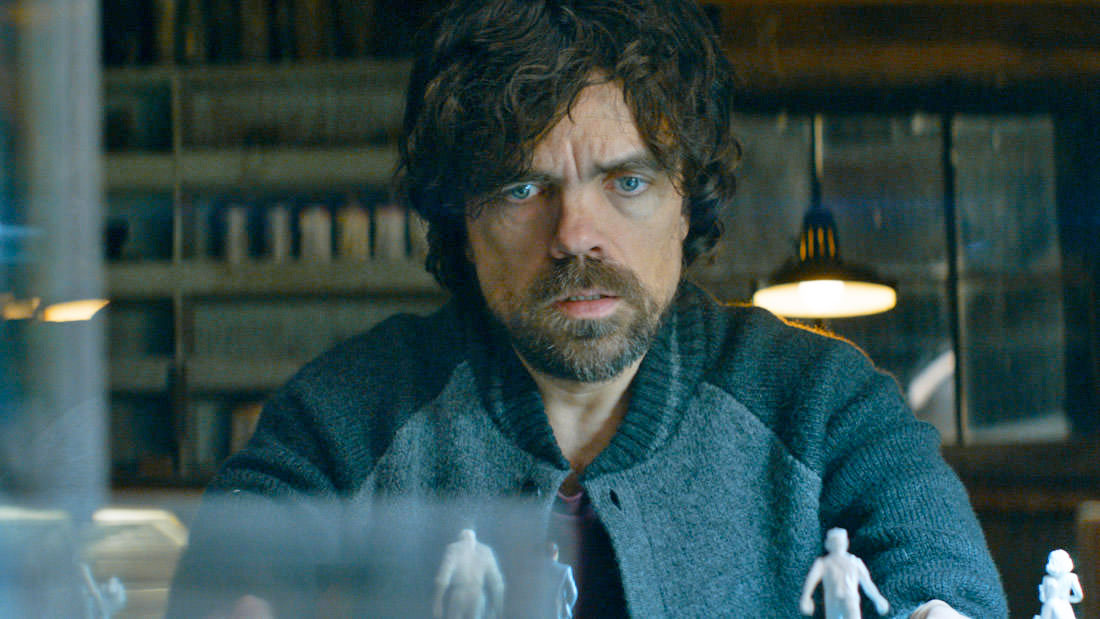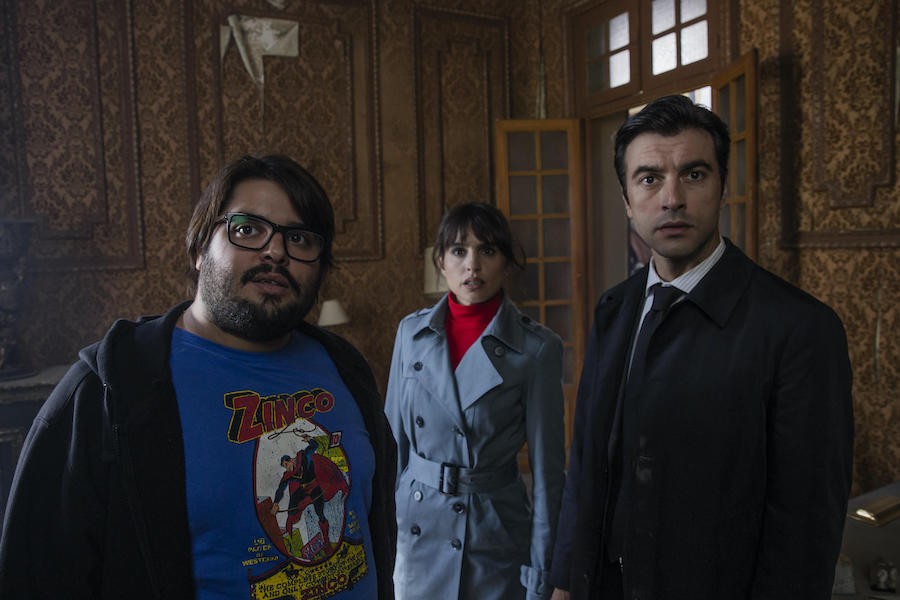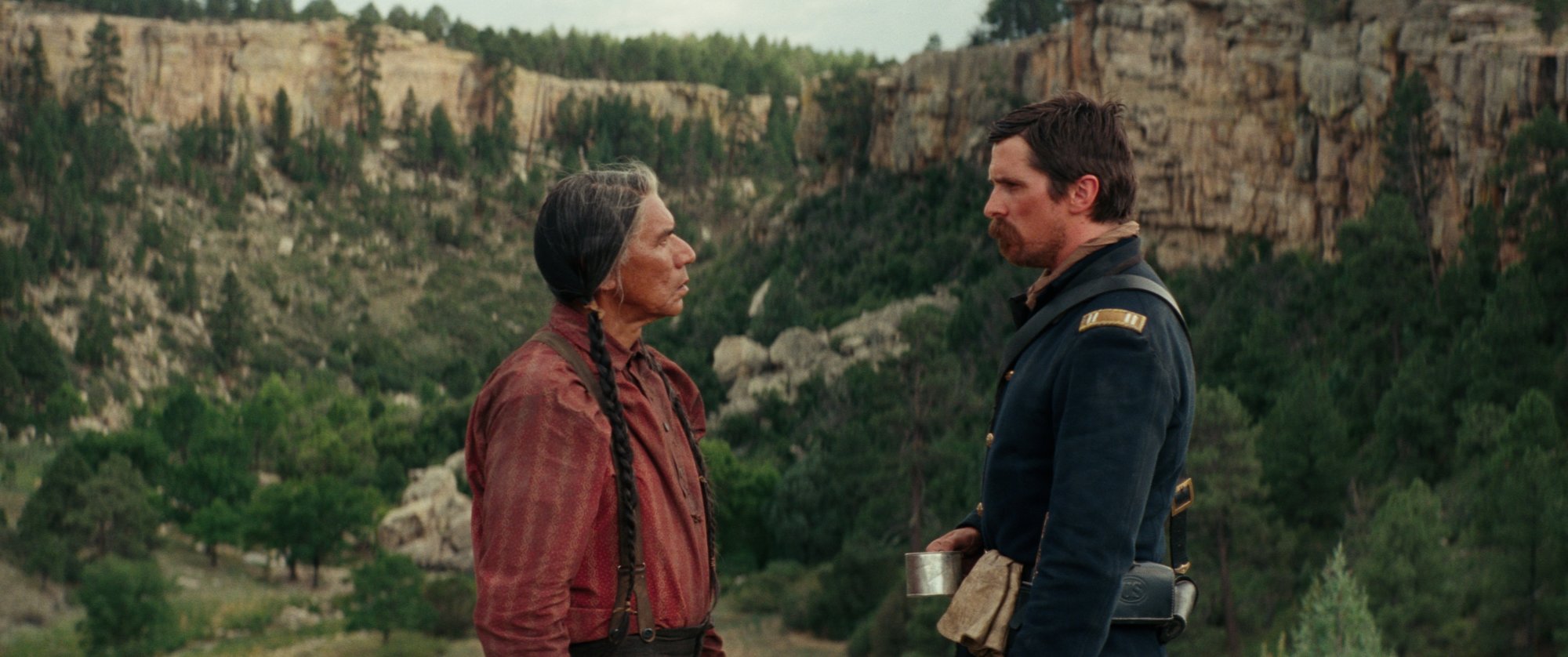What do you want to remember? Wouldn’t it be great if you had some sort of Albus Dumbledore magic pensieve and you could relive over and over your favorite moments in time? You could even relive the parts you’d forgotten about or details your mind chose to ignore at the time. This is sort of the opposite approach to Eternal Sunshine of the Spotless Mind where memories are selectively deleted; unfortunately, I find that gambit more persuasive. Are bad memories stronger than good ones? I suppose it depends on the memory. I will say, however, that while I can’t tell how memories define you, I’ve learned far more from bad memories than good ones and for that reason, I think they linger longer.
Sam Bloom (Peter Dinklage) has some memories he doesn’t exactly cherish. Years ago, he and his rockstar sib Dash Bloom (Matt Ellis) drank and drove and smashed up the DashBloard. On that day, The Brothers Bloom became a solo act, one for surviving Sam to play again and again and again in his mind. So, check it out, there’s a doctor/inventor/CEO/entrepreneur/spokesman –you know, if you’d cast all these roles, you’d have a lot more suspects, dudes— Gordon Dunn (Martin Donovan) who invented a machine that video records memories. While that’s totally cool, nobody ever asks if Gordon has ever tried to record dreams, which would be far more provocative, no? We also never get an idea of why Gordon is speaking to a public audience about his unfinished invention. I’m not sure I get any of this so far: since when does the CEO give a town hall teaser without having operators standing by? I don’t understand your business model.
That very night, Gordon dies of an aneurism. Well, isn’t that conveeeeenient. But not after having a big confrontation with one of his patients, Anton Yelchin, who is probably pissed that he died a eighteen months ago and nobody can Rememory anything of his but Star Trek. Dr. Gordo had perfected the memory videographer to the point where patients wanted to kill him. Turns out some of them had memories best kept hidden, oh and one of the side effects is the machine creates hallucinations – and not the good kind. Why does Gordon go to the office after his lecture? Why does Sam follow him? Why does is there no security in his building? I’m sure I could answer these questions if you just hooked me up to the machine, but I really don’t care to hallucinate about Peter Dinklage.
Bottom line is Sam is determined to solve Gordon’s murder, quickly collecting [read: stealing] the machine and test subject memory chips to do so. This is where the sci-fi needed to boost the “fi” and it kind of didn’t. The random collection of memory chips created a useful playing field to deal with, but the memories themselves were incredibly blasé for the monumental moments lives have to offer. One facet I did love about the memory sorting involved Sam’s work with unused figurines. Sam is a model artist by day and has, it  would seem, a large selection of untouched albino dolls to play with. As he identifies each subject in the case, he also paints the corresponding model as sort of a physical avatar of the person and his/her memories. I wouldn’t build a movie around it or anything, but it’s a nice touch.
would seem, a large selection of untouched albino dolls to play with. As he identifies each subject in the case, he also paints the corresponding model as sort of a physical avatar of the person and his/her memories. I wouldn’t build a movie around it or anything, but it’s a nice touch.
It took me until the very end of this film to understand it completely. Rememory is replete with irrelevance and miserly with the necessary stuff. Sure, that’s a great way to build suspense or show Sam himself wrestling with his own hallucinatory demons, but it answered nothing along the lines of motivation, which is, dare I say, “important.” So while the ending was good enough to save Rememory from forgettable status, the 90 minute build-up of random birthday parties and days at the beach didn’t exactly make this film a day at the beach.
Or at least that’s how I remember it.
♪Re-mem-mem
Re-mem-mem-mem-‘ry
Re-mem-mem
Re-mem-mem-mem-‘ry
When, when, remem’ry, when
That night we crashed the car
Many a crippling scar
Nothing since then has been right
Rememory then, then?
No, no, no♫
Rated PG-13, 111 Minutes
Director: Mark Palansky
Writer: Mark Palansky, Mike Vukadinovich
Genre: The nifty tools of our future
Type of being most likely to enjoy this film: Detectives
Type of being least likely to enjoy this film: The damned
♪ Parody Inspired by “Remember Then”



